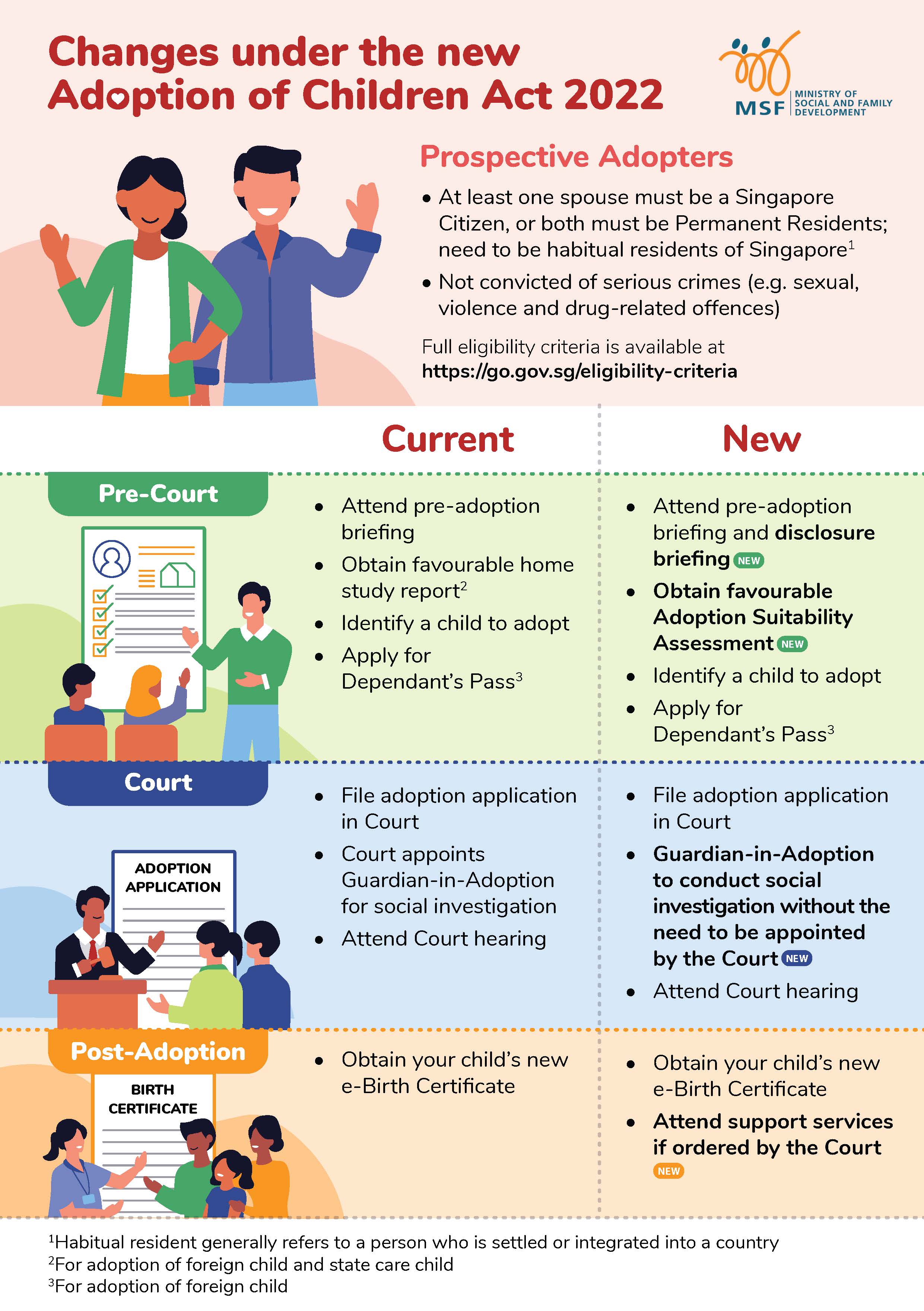Adoption of Children Act
The Adoption of Children Act 2022 was passed in Parliament on 9 May 2022 and comes into operation on 15 October 2024.
With the child’s welfare as the key focus, the ACA 2022 aims to (a) find a good home for every child identified for adoption, (b) balance the interest of birth parents and the child, and (c) ensure a sound regulatory system for the adoption process.
The key changes are listed below. Refer to ACA 2022 on AGC's Singapore Statutes Online website for the full document.
Click here for the Adoption Handbook.

The following are offences under the ACA 2022:
Area | Requirement |
|---|---|
| Restriction on publication or broadcast of information or pictures of children involved in adoption proceedings | You must not publish or broadcast any information or picture that identifies or leads to the identification of a child who is undergoing adoption or has been adopted, unless the following conditions are met:
The Court may order for the publication or broadcast of the information or picture to be taken down or stopped. |
| Restriction on publication or broadcast of information or pictures of children for adoption, etc. | Except with the prior approval of the GIA, a person must not publish or broadcast any information or picture that identifies any child or is likely to lead to the identification of any child, unless the information or picture is communicated
upon the request of a person who desires to adopt a child. Even so, the information and picture shared must be shared in a manner that ensures it is only accessible by the requestor. |
| Publication of the amount to be paid to or through adoption agencies, etc. | Every adoption agency must make publicly available a list of the following information on payments or other rewards to be made or given by any person to or through the adoption agency:
|
| Prohibition against payments and rewards for non-permitted purposes | A person must not make, give, receive, or agree to make, give, or receive any payment or other reward in consideration of an adoption in Singapore of a child or for any adoption-related service in connection with the adoption or proposed adoption
of a child, unless the payment or other reward is permitted under or approved by the GIA. |
| Use of fraud, duress, undue influence, or other improper means to obtain consent to adoption, etc. | A person must not induce, or use any duress or other improper means with the knowledge to cause the following:
|
| Not complying with placement requirements |
|
| Providing false information, etc., in connection with ASA or GIA’s affidavit | A person who provides false or misleading information to the AAA or GIA will be guilty of an offence. |
| Not reporting offences to the GIA | Any person(s) who are aware or has reasons to suspect that an offence under the ACA has been committed must report it to the GIA or authorised officer as soon as they are able to. Failure to do so is an offence. |
| Failure to comply with order for removal and placement of child upon unsuccessful adoption application | In the case of an unsuccessful adoption application, the court may order the person to deliver the child to the physical custody of a suitable person recommended by the Guardian-in-Adoption within the time specified by the court. Any person
who, without reasonable excuse, fails to comply with the court order will be guilty of an offence. |
Form ACA -3: A form of notice to attend court under section 66 of ACA